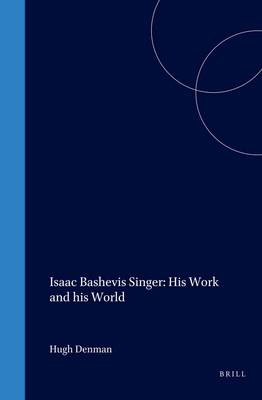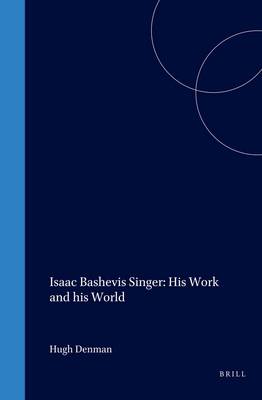
- Afhalen na 1 uur in een winkel met voorraad
- Gratis thuislevering in België vanaf € 30
- Ruim aanbod met 7 miljoen producten
- Afhalen na 1 uur in een winkel met voorraad
- Gratis thuislevering in België vanaf € 30
- Ruim aanbod met 7 miljoen producten
Zoeken
Isaac Bashevis Singer: His Work and His World
€ 323,95
+ 647 punten
Omschrijving
A quarter of a century after Isaac Bashevis Singer was awarded the Nobel Prize for Literature it is time to take stock of his achievement. Penetrating studies of his fictional and autobiographical works by leading scholars in the field reveal that for all the acclaim he has received on the basis of the English versions of his works, no adequate evaluation of Bashevis's significance can be made without careful examination of the original Yiddish texts. Critical readings assess inter alia his themes and motifs, the impact of Kabbalah on his work, reflections of society in his original Polish homeland as well as his place within the context of contemporary Jewish American letters and the canon of modern Yiddish and Hebrew writing.
Specificaties
Betrokkenen
- Uitgeverij:
Inhoud
- Aantal bladzijden:
- 318
- Taal:
- Engels
- Reeks:
- Reeksnummer:
- nr. 1
Eigenschappen
- Productcode (EAN):
- 9789004125643
- Verschijningsdatum:
- 9/12/2002
- Uitvoering:
- Hardcover
- Formaat:
- Genaaid
- Afmetingen:
- 169 mm x 247 mm
- Gewicht:
- 757 g

Alleen bij Standaard Boekhandel
+ 647 punten op je klantenkaart van Standaard Boekhandel
Beoordelingen
We publiceren alleen reviews die voldoen aan de voorwaarden voor reviews. Bekijk onze voorwaarden voor reviews.







